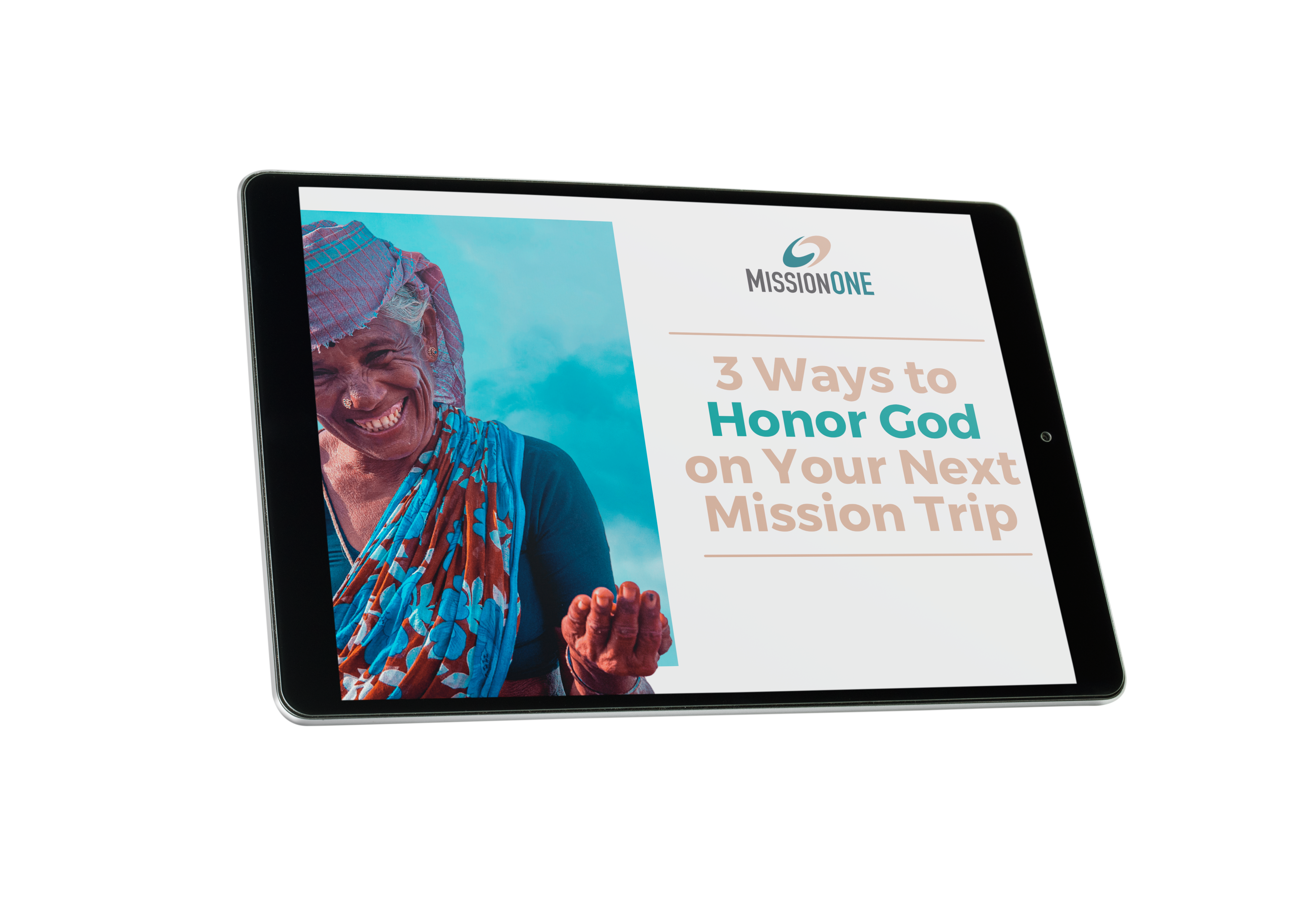Home > Honor and Shame >
Exploring the Gospel’s Cultural Context Personally and Around the Globe

As the Coordinator of Strategic Projects in Asia for Mission ONE, my job is to work with our indigenous partners on strategic projects they are pursuing to make their communities a little more like the kingdom of God. Little did I know how transformative this experience would be in my understanding of working in global ministry — on a deeply personal level and while working with our partners.
At Mission ONE, we are wisely steeping ourselves in the cross-cultural foundation of the honor and shame dynamic. With nearly 12 years of vocational ministry experience, this is almost an entirely new perspective for me. We have primarily been doing this through Werner Mischke’s book The Global Gospel.
In this book and from conversations with Mischke (Mission ONE Vice President) and Jackson W (Mission ONE Theologian in Residence), I am learning how the Bible was written for and in a culture that is largely foreign to the West. That culture operated primarily within the paradigm of honor and shame, whereas the West operates more from a paradigm of guilt and innocence. As such, I am being exposed to the limitation of Western theology and its effects, especially in the Christian missions movement. I have also learned how Western theology has impacted the way I read and understand scripture, and how it has shaped me personally.
I am Hispanic and was raised in a small, rural village in New Mexico. I grew up within a native context that had a mix of both the honor/shame paradigm and the Western guilt/innocence paradigm. What I am learning right now is not only equipping me to better work with our indigenous ministry partners, but it also has had a profound and personal effect on me. It has revealed the ways I self-colonized in the midst of Western culture in order to fit in and pursue Christian ministry and leadership in my life and profession.
In 2006, I devoted my life to Christ while still strongly identifying with my ethnicity. However, I quickly observed that being a Hispanic felt like a hindrance and obstacle when it came to integrating into the “white” “megachurch” I found myself in. Although it wasn’t a clear thought, the pressure was felt that in order to assimilate into this new church culture I felt I had to systemically become more “white” and “Western” and less and less Hispanic. So that’s just what I did. I began to speak differently and changed who I was as a person. I felt ashamed and viewed my Hispanic-ness as a negative aspect of myself that needed to be purged.
Please keep in mind that, at the time, this personal experience was based on subconscious observations, thoughts, and feelings. It wasn’t until I began reading The Global Gospel that this experience in my life was finally given context and language. As Werner points out in the book, our Western theology can have a colonizing effect, with which I had direct experience.
I’m now learning how the guilt and innocence paradigm of the gospel is a Western contextualization we operate within. And, we have taken this paradigm and exported it globally as the paradigm of the gospel. This thinking requires any recipient around the globe to adapt to a Western way of thinking — to some degree — in order to be able to receive it, no matter what their own cultural context is. Even though I live in the West, this is what I experienced in my own life.
This is not to say that the “Western” gospel is not true or good — it is. But I am learning it is not the whole truth. It is only one contextualization, or one perspective, that the gospel of Christ speaks to. Yes, the gospel is the good news that through Jesus we are guilty sinners made innocent before God. Absolutely and amen! It is also equally true that the work of Christ frees us from our shame and replaces it with honor¹.
When it comes to the paradigms of shame and honor and guilt and innocence, in my experience, shame is felt deeper than guilt. Honor reaches so much higher than innocence. Both guilt and shame are problems of sin and — through Christ — are dealt with by the work of the cross. In The Global Gospel, I believe it is Werner’s hope to bring this Western paradigm disparity to light and help us all have a more robust global gospel.
Although I still have a lot of work before me to explore what this means for my life, marriage, ministry, and work, I am better prepared to meet our partners in their own contexts. And I will be wary of the superior attitude that we in the West often take, whether knowingly or unknowingly.
In doing this work, I often face the question: Are you called to a context that is your own or that is foreign?
Fortunately, I have been blessed to work in both my own context and a foreign context. Through it all, one thing is clear — I could never be as effective at sharing the gospel in a foreign context than a local individual would be. The goal of missions should be to raise up and equip locals to do the work of ministry within their own context.
At Mission ONE, we work exclusively with indigenous organizations who are led by indigenous leaders, all of whom are engaged in raising up more indigenous leaders. This is at the core of what we do and why I love being a part of Mission ONE.
¹ (Zephaniah 3:19, Romans 10:11, 1 Peter 2:6)
Learn more about Mission ONE and how you can join us in our work today.
Search the Blog
Free Resource

3 Ways to Honor God on Your Next Mission Trip
We're sharing three things you should consider before you organize or participate in an international mission trip, seek to do work in the multicultural neighborhood in your own city, or embark on any cross-cultural partnership.

